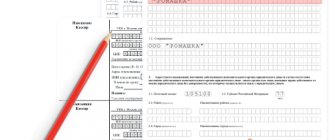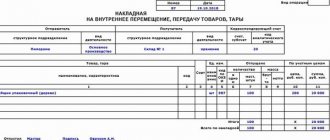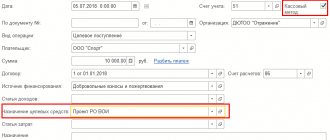What positions in accounting do you know?
3 tbsp. 7 of the Federal Law of December 6, 2011 N 402-FZ “On Accounting”):
- or entrust accounting to the chief accountant;
- or entrust accounting to another official of the organization;
- or enter into an agreement for the provision of accounting services.
The head of the organization can also take charge of accounting (Clause 3, Article 7 of the Federal Law of December 6, 2011 N 402-FZ “On Accounting”).
The position of a deputy is a derivative position from the main position contained in the organization’s staffing table.
Considering that in the situation you describe, the staffing table does not provide for the position of “chief accountant,” then, in our opinion, it is not correct to provide for the position of “deputy chief accountant.”
We recommend:
- or provide for the position of “deputy accountant” in the staffing table, taking into account that the position of “accountant” is contained in the staffing table;
- or instead of the position “accountant”, provide in the staffing table the position “deputy general director for finance” (Resolution of the Ministry of Labor and Social Development of the Russian Federation dated 08/21/1998 N 37 “On approval of the Qualification Directory of Positions of Managers, Specialists and Other Employees”, Order of the Ministry of Labor of Russia dated 12.22.2014 N 1061n “On approval of the professional standard “Accountant”).
Mayorova Kristina Alekseevna
Customer Support Expert
This article appeared as a reaction to messages from accounting forums. There you can often find novice accountants looking for answers to the questions: “I want to work as an accountant. What I need to know”, “What a novice accountant should know”, “Where to start studying accounting”. Judging by how many people ask them and how many are trying to help them by giving advice, it is clear that the question is relevant.
I am writing this article because I noticed a pattern in these messages and I cannot remain silent about it. I consider it very important because, in my opinion, it creates confusion in the councils. I'll try to explain now what I mean.
Let's start with the fact that when giving advice, people describe the knowledge and skills that an accountant should have. For example:
“...Laws change at the speed of light, and so does the chart of accounts. Accounting at a confectionery factory is completely different than at a car factory or, in general, at a state-owned enterprise..."
“...she must have a thorough knowledge of accounting and all reporting...”
“...At this stage, the accountant is engaged not only in accounting, but also in financial, management, and tax accounting...”
“...To work as a normal accountant, you must have a specialist. education. And constant self-education - everything changes every day..."
“...To become a good accountant or chief accountant you need to study a lot and constantly learn...”
Answer
Deputy Chief Accountant – position in the management category.
This is directly stated in the General Provisions of the CEN, approved by: Resolution of the Ministry of Labor of Russia dated August 21, 1998 No. 37 On approval of the Qualification Directory of Positions of Managers, Specialists and Other Employees (clause 7): The position of a deputy is derived from the main position. The job responsibilities of these employees, the requirements for their knowledge and qualifications are determined on the basis of the characteristics of the corresponding basic positions contained in the Directory. In your case, the position is derived precisely from the position of chief accountant, and therefore both the responsibilities and classification as a deputy position must be done in accordance with the main position - chief accountant.
The approach is similar in the All-Russian Job Classifier, approved. Resolution, Classifier of the State Standard of Russia dated December 26, 1994 No. 367, OK 016-94 On the adoption and implementation of the All-Russian Classifier of worker professions, employee positions and tariff categories OK 016-94 (as amended as of August 1, 2012): Derivative position of deputy is coded according to the main position, it is assigned both a facet - managers, and a facet - deputy.
Details in the materials of the Personnel System:
Revision dated February 12, 2014
Resolution of the Ministry of Labor of Russia dated August 21, 1998 No. 37
On approval of the Qualification Directory for positions of managers, specialists and other employees
In accordance with the Regulations on the Ministry of Labor and Social Development of the Russian Federation (clause 8.3), approved by Decree of the Government of the Russian Federation of April 23, 1997 No. 480, the Ministry of Labor and Social Development of the Russian Federation decides:
2. Establish that the Qualification Directory for positions of managers, specialists and other employees approved by this resolution is recommended for use in enterprises, institutions and organizations of various sectors of the economy, regardless of ownership and organizational and legal forms.
3. The Institute of Labor shall ensure the publication of the required quantity of the specified Qualification Directory.
The qualification guide was published in December 1998. For information on how to purchase it, see page 4 of the cover.
Minister of Labor and Social Development of the Russian Federation O. Dmitrieva
APPROVED by Decree of the Ministry of Labor of the Russian Federation on August 21, 1998 No. 37
Qualification directory for positions of managers, specialists and other employees
The qualification directory of positions of managers, specialists and other employees is a normative document developed by the Institute of Labor and approved by Resolution of the Ministry of Labor of Russia dated August 21, 1998 No. 37. This publication includes additions made by Resolutions of the Ministry of Labor of Russia dated December 24, 1998 No. 52, dated February 22 1999 No. 3, dated January 21, 2000 No. 7, dated August 4, 2000 No. 57, April 20, 2001 No. 35, dated May 31, 2002 and dated June 20, 2002 No. 44. The reference book is recommended for use in enterprises in institutions and organizations of various sectors of the economy, regardless of ownership and organizational and legal forms, in order to ensure the correct selection, placement and use of personnel. The new Qualification Handbook is designed to ensure a rational division of labor, create an effective mechanism for delineating functions, powers and responsibilities based on clear regulation of the work activities of workers in modern conditions. The directory contains new qualification characteristics of employee positions related to the development of market relations. All previously existing qualification characteristics have been revised; significant changes have been made to them in connection with the transformations being carried out in the country and taking into account the practice of applying the characteristics. In the qualification characteristics, the standards for regulating the labor of workers were unified to ensure a unified approach to the selection of personnel with appropriate qualifications and compliance with uniform principles for the tariffing of work based on its complexity. The qualification characteristics take into account the latest legislative and regulatory legal acts of the Russian Federation. ...
7. The Directory does not include qualification characteristics of derivative positions (senior and leading specialists, as well as deputy heads of departments). The job responsibilities of these employees, the requirements for their knowledge and qualifications are determined on the basis of the characteristics of the corresponding basic positions contained in the Directory. The issue of distribution of job responsibilities of deputy heads of enterprises, institutions and organizations is resolved on the basis of internal organizational and administrative documents. The use of the job title “senior” is possible provided that the employee, in addition to performing the duties prescribed by his position, supervises the performers subordinate to him. The position of “senior” can be established as an exception and in the absence of performers directly subordinate to the employee, if he is entrusted with the functions of managing an independent area of work. For specialist positions for which qualification categories are provided, the job title “senior” is not used. In these cases, the functions of managing subordinate performers are assigned to a specialist of the first qualification category. The job responsibilities of the “leaders” are established based on the characteristics of the corresponding specialist positions. In addition, they are entrusted with the functions of a manager and responsible performer of work in one of the areas of activity of an enterprise, institution, organization or their structural divisions, or responsibilities for coordination and methodological management of groups of performers created in departments (bureaus) taking into account the rational division of labor in specific organizational units. -technical conditions. The requirements for the required work experience are increased by 2-3 years compared to those provided for specialists of the first qualification category. Job responsibilities, knowledge requirements and qualifications of deputy heads of structural divisions are determined based on the characteristics of the corresponding positions of managers.
The qualification characteristics of the positions of heads (managers) of departments serve as the basis for determining job responsibilities, knowledge requirements and qualifications of the heads of the relevant bureaus when they are created instead of functional departments (taking into account industry characteristics).
Revision dated August 1, 2012
Resolution, Classifier of the State Standard of Russia dated December 26, 1994 No. 367, OK 016-94
On the adoption and entry into force of the All-Russian Classifier of Worker Occupations, Employee Positions and Tariff Grades OK 016-94 (as amended as of August 1, 2012)
COMMITTEE OF THE RUSSIAN FEDERATION FOR STANDARDIZATION, METROLOGY AND CERTIFICATION
dated December 26, 1994 No. 367
On the adoption and implementation of the All-Russian Classifier of Worker Occupations, Employee Positions and Tariff Grades OK 016-94
Read more: What positions to offer when downsizing
_____________________________________________________________________ Document with amendments made by: amendment 1/96 OKPDTR, approved. State Standard of the Russian Federation on December 23, 1996; amendment 2/99 OKPDTR, approved. Gosstandart of the Russian Federation; amendment 3/2002 OKPDTR, approved. Gosstandart of the Russian Federation; amendment 4/2003 OKPDTR, approved. Gosstandart of the Russian Federation; amendment 5/2004 OKPDTR, approved. Rostekhregulirovanie; amendment 6/2007 OKPDTR, approved. Order of Rostekhregulirovaniya dated July 18, 2007 No. 181-st; amendment 7/2012 OKPDTR, approved. By order of Rosstandart of June 19, 2012 No. 112-st. _____________________________________________________________________
The all-Russian classifier of blue-collar professions, office positions and tariff categories was developed in order to implement the State program for the transition of the Russian Federation to the accounting and statistics system accepted in international practice in accordance with the requirements of the development of a market economy, taking into account the new production and economic conditions for the development of the Russian Federation and the experience of developing international classifiers .
The Committee of the Russian Federation on Standardization, Metrology and Certification decides:
1. Adopt the All-Russian Classification of Worker Occupations, Employee Positions and Tariff Classes OK 016-94 with an effective date of January 1, 1996.
2. To cancel the All-Union Classifier of Worker Occupations, Employee Positions and Tariff Classes (186,016) on the territory of the Russian Federation from January 1, 1996.
Chairman of the State Standard of Russia S.F. Bezverkhy
COMMITTEE OF THE RUSSIAN FEDERATION FOR STANDARDIZATION, METROLOGY AND CERTIFICATION
ALL-RUSSIAN CLASSIFIER
OF WORKER PROFESSIONS, EMPLOYEE POSITIONS AND TARIFF RANKS
Adopted and put into effect by Resolution of the State Standard of Russia of December 26, 1994 No. 367 from January 1, 1996
The All-Russian Classifier of Worker Occupations, Employee Positions and Tariff Grades (OKPDTR), which is an integral part of the Unified System of Classification and Coding of Information (USCC) of the Russian Federation, was prepared as part of the implementation of the state program for the transition of the Russian Federation to the accounting and statistics system accepted in international practice in accordance with requirements for the development of a market economy.
OKPDTR was developed to replace the All-Union Classifier of Worker Occupations, Employee Positions and Tariff Classes (OKPDTR) 1 86 016.
The classifier is intended to solve problems related to estimating the number of workers and employees, taking into account the composition and distribution of personnel by categories of personnel, skill level, degree of mechanization and working conditions, issues of ensuring employment, organizing wages of workers and employees, calculating pensions, determining additional needs for personnel and others at all levels of national economic management in conditions of automated information processing.
The objects of classification in OKPDTR are the professions of workers and positions of employees.
OKPDTR consists of two sections:
The first section - professions of workers - includes professions of workers in accordance with the Unified Tariff and Qualification Directory of Work and Professions of Workers (UTKS), as well as professions of workers whose rights and responsibilities are provided for in the charters, special provisions and relevant regulations regulating the composition of professions in sectors of the economy.
The second section - positions of employees - was developed on the basis of the Unified Nomenclature of Positions of Employees, the Qualification Directory of Positions of Managers, Specialists and Employees, current regulations and other regulatory documents on remuneration issues, taking into account the names of positions used in the economy. The titles of positions of civil servants are given in accordance with Decrees of the President of the Russian Federation “On public positions of the Russian Federation” No. 32 and “On the register of public positions of federal civil servants” No. 33 of January 11, 1995.
Each classifier position consists of three blocks:
— block of the name of the classification object;
The identification block is built using a serial-ordinal coding system for classification objects. The classification object identification block includes five digital decimal places and a check number.
The control number was calculated in accordance with the current Methodology for calculating and applying control numbers.
The structure of the code designation of worker professions (employee positions) in the classifier:
| X | XXXX | X | ||
| check number (CN) | ||||
| serial number of the classification object | ||||
| Profession | ||||
| Job title | ||||
(as amended by Amendment No. 4/2003 OKPDTR, approved by the State Standard of the Russian Federation)
To code a worker's profession, code values corresponding to 1 or 3 are used. To code an employee's position, code values corresponding to 2 or 4 are used (paragraph introduced by Amendment 4/2003 OKPDTR, approved by the State Standard of the Russian Federation, as amended by Amendment 5/2004 OKPDTR, approved. Rostekhregulirovanie).
The classification object name block is a unified record of the name of a specific profession of a worker or position of an employee.
In each section, the names of classification objects are arranged in alphabetical order.
The information block of workers' professions includes facet codes that characterize the correspondence of the worker's profession to the ETKS issue number (two characters) and certain positions of the All-Russian Classifier of Occupations (OKZ) OK 010-93. The last facet indicates the basic group of classes in OKZ and includes four signs.
_________________________________ All-Russian classifier of occupations. OK 010-93, M.: Standards Publishing House, 1995.–444 p.
The information block of employee positions includes faceted codes corresponding to the position category (one character) and also certain positions of the OKZ (four characters). Three facets characterize positions according to the following characteristics:
job categories - one character, facet 10;
derived positions - two signs, facet 11;
qualification categories (classes) - one sign, facet 12.
A feature of facets 11 and 12 is the alternative nature of their application for various positions, since derivative positions do not provide for qualification categories. Thus, depending on the position, choose facet 11 or 12.
An example of coding according to OKPDTR for the position of deputy head of the financial and economic department:
24695 1 1 1231 03,
where: 2 - position;
4695 - head of department (financial, economic and administrative);
1 - check number;
1 - category of managers;
1231 - basic group for OKZ (Heads of financial, economic and administrative divisions and services);
03 - derivative position - deputy.
Between the objects of the OKPDTR and OKZ classification, connections have been established that allow each OKPDTR object to be assigned to the corresponding OKZ grouping. In general, each profession of a worker or position of an employee can be unambiguously assigned to a specific group of occupations. However, due to the fact that the concepts of “occupation”, “profession”, “position” are different, in some cases, in order to establish an unambiguous connection between OKPDTR and OKZ, it is necessary to use explanations for the groupings of OKZ. These explanations should also be used when coding derived professions of workers and positions of employees.
The composition and sequence of arrangement of facets of the information block are determined by the specifics of specific tasks solved using the classifier.
Read more: How to sign documents using a power of attorney sample
In the information block, codes and names of other all-Russian classifiers of technical and economic information can also be used as additional features.
The OKPDTR adopts the following form of material arrangement:
in the section "Professions of workers"
| Code | CC | Name of profession | Range of tariff categories | ETKS issue code | OKZ code |
in the section "Positions of employees"
| Code | CC | Name of profession | Category code | OKZ code |
When developing unified forms of documents that use classifier codes, a mandatory reference to OKPDTR must be provided.
The system for maintaining the classifier provides for the interaction of the Research Institute of Labor and the Central Bank of Science and Technology of the Ministry of Labor of Russia with the VNIIKI of the State Standard of Russia
With respect and wishes for comfortable work, Tatyana Kozlova,
Classification of enterprise personnel Personnel are divided into categories depending on specific characteristics. Let's look at them in more detail:
- Property relations. There are owners (founders) of a legal entity. They own a share of the enterprise and profit from its activities. There are also hired employees.
- Degree of involvement in production activities. Production personnel are involved in activities directly, non-production personnel - indirectly.
- Place of main service. Employees may or may not be on the staff of the enterprise.
Some employees differ from others in the specifics of their activities and the characteristics of their labor relationships with enterprises.
What might a novice accountant think about?
Personally, I perceive it this way: AN ACCOUNTANT seems to me to be an unattainable ideal, possessing maximum knowledge and virtuoso skills. I imagine such an accountant as a Chief Accountant, having a variety of experience from all areas of activity.
But do these tips help a beginner? Personally, they wouldn't help me. Of course, they would have given me some guidelines, but not specific actions in specific situations.
I want to say - let's use the right words: not ACCOUNTANT, as a collective image. This doesn't help beginners. Let's be specific.
And the specifics are that:
— There are “different” accountants at an enterprise. — the amount of knowledge and requirements for an “accountant” depends on the size of the enterprise and its accounting staff
Accountant career
Any graduate with a special education can get a job after graduating from a university. You shouldn't waste your time. For an accountant, the main thing is to gain diverse experience. For this, working in large companies is best suited.
How quickly you will be promoted to the position of chief accountant depends only on you.
Places of work
There is no accountant who would not find a job in his specialty. Such people are in demand in all areas of activity, be it a company, a firm or a manufacturing enterprise.
Accountant's salary
It is difficult to name a fixed amount. The level of income is influenced by the qualifications of the specialist, his work experience, the complexity of the assigned duties and the prestige of the company. On average we are talking from 350 to 1000 dollars per month.
The chief accountant's salary is significantly higher.
There are “different” accountants
Based on my practice, I will list the main ones:
- Accountant material desk
- Accountant cashier
- Accountant bank
- Accountant for mutual settlements
- Payroll Clerk
- Accountant for fixed assets
- Accountant on checkout
- VAT accountant
- Accountant for purchasing goods
- Chief accountant, putting together all accounting
Do all these options for “accountants” require the same amount of knowledge? Does each of them need to know everything related to accounting, for example:
- tax systems,
- filling out reports,
- ability to calculate salaries,
- name and rules for filling out all primary documents,
- knowledge of all accounting accounts and transactions,
- formation of balance,
- formation of a declaration,
- regulatory documents and laws on accounting/tax accounting?
- and etc.
Isn’t this all the knowledge implied in many pieces of advice? Is it possible for someone who has just embarked on the accounting path to do all this at once? Before I even started working!
Of course, not knowing anything at all is not an option either.
Types of accounting activities
An accountant is a very important position. In a small organization, one specialist is enough to conduct accounting activities. At large enterprises, the staffing table provides for more than two employees, each of whom is assigned a narrow range of responsibilities
For example: accountant - economist, accountant - materialist, payroll accountant. In this case, control over their activities and the preparation of reports is assigned to the chief accountant.
Let's look at some varieties of this profession.
- Junior accountant - works at a small enterprise, where he does accounting and prepares accounting documentation.
- An ordinary accountant or accountant - technician - can deal with accounting issues and analyze the economic activities of an enterprise.
- An accountant - economist - evaluates the results of the financial activities of an enterprise, calculates costs, controls the expenditure of material assets and performs a number of other duties.
- An accountant-auditor is a specialist and financial analyst in the field of external audit.
The development of computer technology could not but affect the position of an accountant. Many of them are engaged in private practice remotely. Freelance accountants conduct accounting for several companies and submit reporting documentation for each of them, for which they have a certain income.







